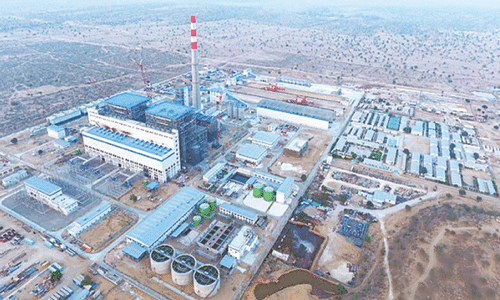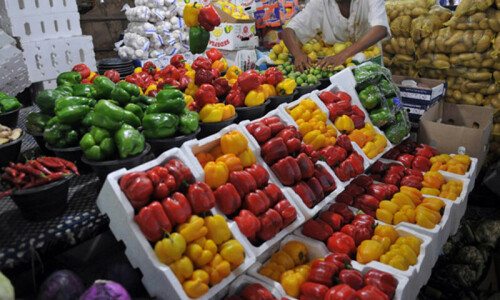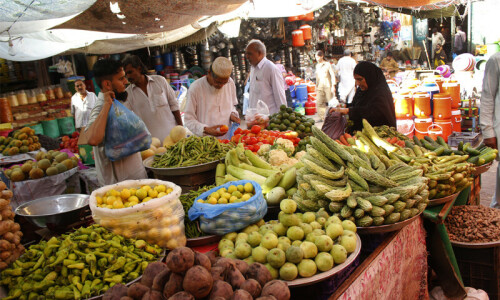 India has started losing its market of basmati rice to Pakistan primarily because of the curbs it imposed on its export to avoid running out of the commodity, a staple diet in may parts of the country.
India has started losing its market of basmati rice to Pakistan primarily because of the curbs it imposed on its export to avoid running out of the commodity, a staple diet in may parts of the country.
Pakistani basmati exporters enjoy a price advantage of $400 a tonne over Indians as a result of the minimum export price fixed by New Delhi along with an export tax of Rs8,000 ($200) a tonne. India has also completely banned export of non-basmati varieties which will remain in force till November. This offers an uncontested market of irri-6 variety to Pakistani players in the Middle East and Europe.
According to Indian media, the exports of basmati rice have seen a nosedive since July due to hesitation shown by major buyers such as Saudi Arabia and Iran to purchase it at high prices. Most Indian customers are, therefore, shifting to Pakistani basmati. The sale has seen a decline of 30-40 per cent since April 29 when the export tax was imposed. The country exported 1.18 million tonnes of basmati in 2007-08, worth Rs4,334 crore.
Although Indian prices have softened from $2,000 to $1,700 a tonne since June, still there are no buyers. Industry fears the export tax may also impact farmers when they begin harvesting paddy in September. Millers plan to adjust the Rs8,000 a tonne export tax from the price they pay to farmers for the paddy. Rice traders accuse New Delhi of subsidising Basmati for the rich upper class at the cost of farmers and trade by depressing its prices.
Pakistan has also put curbs on export of various rice varieties to keep uninterrupted supply in the home market. A notification issued by the Commerce Ministry on May 1 fixed the minimum export prices (MEP) for super basmati at $1,500 a tonne, medium grade at $1,300 a tonne and non-basmati Irri-6 at $750 a tonne. The strategy was that the higher MEP would confer maximum benefits on farmers and persuade growers to augment yield for the next crop and there are expectations that basmati rice production would go up to eight million tonnes in the next crop from the current crop of 5.5 million tonnes, of which more than two million tonnes are being exported.
Islamabad says that with the MEP in place, the value of rice exports would increase to $4 billion by the end of this year from the $1.2 billion last year while by putting a higher MEP. Pakistan is also giving a message to the rest of the world that its basmati rice is of better quality than the counterpart Indian varieties. Currently, India holds 53 per cent share in the global market of basmati rice and Pakistan the second slot but there is always an intense competition between the two basmati producing nations.
Meanwhile, rice varieties which are popular among Indian expatriates are being smuggled into the UAE on a large scale and sold clandestinely. Although these varieties cost more than twice the normal price, Indian residents, especially South Indians, are buying it in bulk as they prepare for Onam, annual harvest festival to be observed on September 12 which, they say, will be colourless without their favourite varieties.
The UAE traditionally imports more than 750,000 tonnes of rice a year, mainly from India and Pakistan, but also from Thailand and Egypt. In Saudi Arabia, rice prices have nearly doubled across the Kingdom. India and Pakistan are the main exporters. Market operators hope that prices would ease later this year as new harvests in India and Pakistan might boost supply.
In India and Pakistan, rice has been a staple food for thousands of years. A French scientist once said the sub-continent had 200,000 varieties of rice in the past. Others put the figure at 100,000. Not any more. After the Green Revolution, the number for commercial sowing has dropped to about fifty which can be described as the greatest destruction of genetic diversity in any food crop anywhere in the world.
Meanwhile, in a major and controversial initiative, India has changed the definition of the basmati rice.
Its agriculture ministry has removed the bar of having one of the two parents from among the traditional basmati varieties, thereby, paving the way for inclusion of evolved basmati varieties too. The revised definition enables India to develop new varieties to capture more basmati rice markets.
The definition has been expanded by including in the family history (genealogy) a basmati variety (traditional or evolved) notified under India’s Seed Act 1966, to pass the “basmati quality genes” into the new evolved varieties. It thus seeks to claim that all varieties of basmati rice notified as basmati rice and any future variety notified as basmati will be construed to be basmati rice.
It comes in the backdrop of a cold war that had been going on between India and Pakistan over basmati and which had taken a new turn recently with the Rice Exporters’ Association of Pakistan sending a legal notice to India’s commerce and industry ministry for notifying ‘super basmati’.
Although New Delhi has replied to the notice contesting Islamabad’s allegation that India is usurping its basmati variety, the fact remains that basmati is part of the common heritage of the two countries. No way out of the imbroglio has been sorted out as Islamabad is not keen to accept the Indian offer of joint registration of basmati as a Geographical Indication. The problem is that Pakistan has not yet enacted a GI law and cannot accept Indian offer.
In 2006, agricultural scientists at Rice Research Institute at Kala Shah Kaku had developed two new varieties of Basmati rice after 13 years of hectic research and these are currently under commercial testing.
According to figures released by Pakistan’s agricultural ministry, the country’s basmati rice exports during July-December 2007 period registered a decline of almost 15 per cent compared to exports of that period a year ago. Actually, basmati export have declined while total rice exports have increased by 13 per cent. Middle East is the major market for Pakistani basmati rice, which imports over 50 per cent of total basmati rice exports.















































Dear visitor, the comments section is undergoing an overhaul and will return soon.